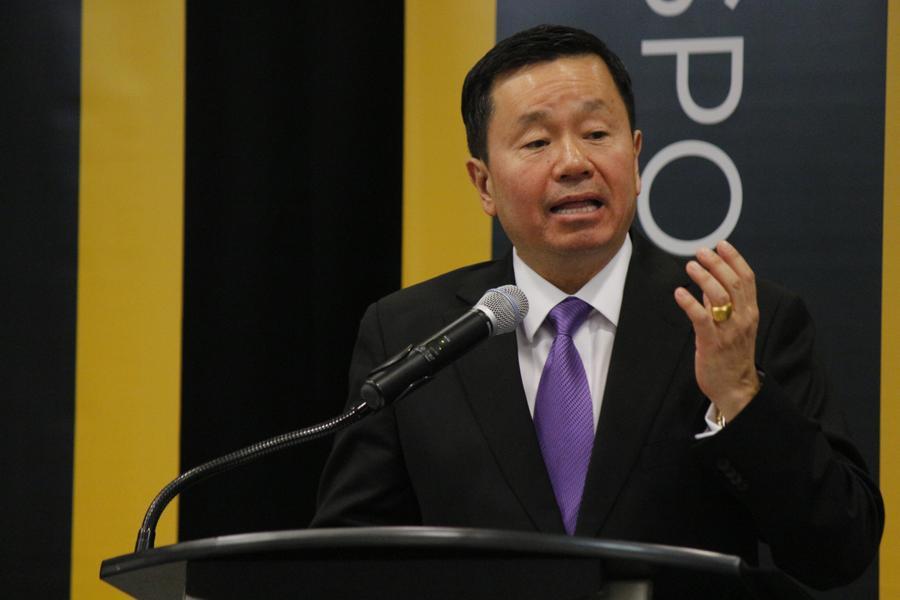The UM System Board of Curators unanimously passed a motion to amend Collected Rules and Regulations item 110.080 during its meeting on Thursday. The amendment states that, among other things, “University Landmarks” cannot be added or removed without the consent of the Board.
UM System President and MU Chancellor Mun Choi said that he has recently been “getting a lot of criticism, both locally and nationally” for his decision not to remove the statue of Thomas Jefferson on MU’s campus. During the meeting, Choi emphasized that the decision to remove the statue is to be made by the Board of Curators.
Students have petitioned for the removal of the statue and accompanying tombstone, which sit on Francis Quadrangle in the heart of MU’s campus.
Curator David Steelman of District 8 in Rolla, Mo. defended the statue, saying that it is a part of “American heritage” and should remain in place because of Thomas Jefferson’s contribution to history in writing the Declaration of Independence.
Curator Greg Hoberock of District 3 in Washington, Mo. followed up Steelman’s statement by encouraging Choi to “defend us,” meaning the Board, when discussing decisions related to university landmarks.
In a press conference following the meeting, Choi said MU “takes great responsibility in being stewards” of the monuments.
The board also passed a resolution to name the new MU Center for Race, Citizenship and Justice after MU alumnus Michael A. Middleton, an interim system president, civil rights activist, attorney and law professor.
“The Michael A. Middleton Center for Race, Citizenship, and Justice will provide a valuable forum where critical state and national issues can be discussed and debated thoughtfully from all perspectives and politics,” said Board Chair Julia Brncic.
Choi says the center will “engage the wider community” and that an advisory committee will consist of about 12 members.
In response to questions from curators, Choi explained that the board will have “important oversight of all activities that occur” within the MU Center for Race, Citizenship and Justice and they “will have many interactions with the center.” He said faculty members within the center are still free to pursue studies in their field of expertise.
_Edited by Eli Hoff | [email protected]_








